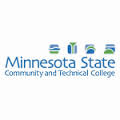What do they do?
Install, program, maintain, and repair security and fire alarm wiring and equipment. Ensure that work is in accordance with relevant codes.
Also known as:
Alarm Technician, Fire Alarm Technician, Home Security Alarm Installer, Install Technician, Installation Technician, Installer, Security Installation Technician, Security Installer, Security Technician, Service Technician
-
0%
Change
Ranks #59 in job growth rate250Job Openings
Ranks #19 in net job growth
Looking for colleges that offer a specific major? Use the College Match Tool to find your best-matched schools and discover your estimated Net Price!
- High school diploma equivalent (36%)
- Some college, no degree (34%)
- Bachelor's degree (11%)
- Associate's degree (10%)
- Less than high school diploma (7%)
- Master's degree (1%)
- Doctorate or Professional Degree (<1%)
People in this career often have these skills:
- Speaking - Talking to others to convey information effectively.
- Critical Thinking - Using logic and reasoning to identify the strengths and weaknesses of alternative solutions, conclusions, or approaches to problems.
- Installation - Installing equipment, machines, wiring, or programs to meet specifications.
People in this career often know a lot about:
- Public Safety and Security - Knowledge of relevant equipment, policies, procedures, and strategies to promote effective local, state, or national security operations for the protection of people, data, property, and institutions.
- Computers and Electronics - Knowledge of circuit boards, processors, chips, electronic equipment, and computer hardware and software, including applications and programming.
- Customer and Personal Service - Knowledge of principles and processes for providing customer and personal services. This includes customer needs assessment, meeting quality standards for services, and evaluation of customer satisfaction.
- Telecommunications - Knowledge of transmission, broadcasting, switching, control, and operation of telecommunications systems.
- Building and Construction - Knowledge of materials, methods, and the tools involved in the construction or repair of houses, buildings, or other structures such as highways and roads.
People in this career often have talent in:
- Oral Comprehension - The ability to listen to and understand information and ideas presented through spoken words and sentences.
- Problem Sensitivity - The ability to tell when something is wrong or is likely to go wrong. It does not involve solving the problem, only recognizing that there is a problem.
- Oral Expression - The ability to communicate information and ideas in speaking so others will understand.
- Near Vision - The ability to see details at close range (within a few feet of the observer).
- Deductive Reasoning - The ability to apply general rules to specific problems to produce answers that make sense.
- Information Ordering - The ability to arrange things or actions in a certain order or pattern according to a specific rule or set of rules (e.g., patterns of numbers, letters, words, pictures, mathematical operations).
- Arm-Hand Steadiness - The ability to keep your hand and arm steady while moving your arm or while holding your arm and hand in one position.
- Manual Dexterity - The ability to quickly move your hand, your hand together with your arm, or your two hands to grasp, manipulate, or assemble objects.
People in this career often do these activities:
- Install electrical components, equipment, or systems.
- Repair electrical components.
- Position equipment using hand tools, power tools, or heavy equipment.
- Explain use of products or services.
- Test electrical circuits or components for proper functioning.
- Repair electrical circuits or wiring.
- Lay cables to connect equipment.
- Inspect equipment to locate or identify electrical problems.
- Inspect safety equipment to ensure proper functioning.
- Drill holes in parts, equipment, or materials.
- Determine types of equipment, tools, or materials needed for jobs.
- Plan work procedures.
- Document operational activities.
- Confer with customers or users to assess problems.
- Run wiring to connect equipment.
- Adjust equipment to ensure optimal performance.
- Estimate costs for labor or materials.
- Maintain knowledge of current developments in area of expertise.
- Order materials, supplies, or equipment.
This page includes data from:

 Occupation statistics: USDOL U.S. Bureau of Labor Statistics Occupational Employment Statistics
Occupation statistics: USDOL U.S. Bureau of Labor Statistics Occupational Employment Statistics








